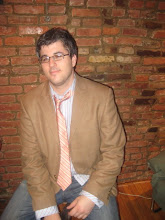Our inaugural class in 2006-07 wrote the school's constitution in conjunction with a 9-week study of the U.S. Constitution. The principal provided the okay for students to create a government that would reflect the concepts and structure of our federal government. Students worked for weeks in 6 different classes writing articles, presenting, and debating. After each class had developed a constitution, we were able to combine 2 classes at a time and create 3 constitutions. Finally, we called a half-day Constitutional Convention and the entire student body and faculty completed the process by deliberating and writing the final school-wide constitution. Ratification successful occurred the following week and Constitution High School cemented the most powerful and unique school government in the country. Some processes and powers are replicas of the federal government such as how a bill becomes a law while others are adaptations. For instance, the President nominates two faculty judges which are then confirmed by both the House of Students and Faculty Senate. Then the two faculty judges interview prospective candidates to fill the other seven positions. Students wanted to ensure that the judicial branch would be free from a possible popularity race. A later post will have the original constitution and the most recent amendments that the new freshman and sophomore class ratified after another 2 weeks of preparation and half-day Constitution Convention.
The 2006-07 class wrote a usable constitution but its flaws were revealed as government came into operation. Students did not create mechanisms to fill vacancies and individual rights were not addressed. Unexpected issues such as how transfer students would be treated for positions that required passing of the U.S. Constitution course and a general code of conduct for government meetings. Tension also emerged once the new freshman discovered language in the constitution that favored upperclassmen such as grade-level requirement to become a judge. Philosophical discussions as to the nature of leadership came to a head when some students wanted to raise the grade average requirement for office from C to B. Members of government wanted executive positions duties enumerated and a judicial branch with a greater role. Some mistakes such as executive branch term limits were never written into the original and for a moment the cabinet did not want to address the issue so power would stay in their hands. Most of these issues were resolved in the amending convention on October 26, 2007.
An interesting pattern emerged when students and faculty voted on each of the 25 amendments. Below is an email I sent to our school community after the votes for ratification were tallied.
Staff and Partners,
We have data to prove that our program is creating active citizens. After tallying all the ballots, the amending committee (Doriean, Charles, Diamond, Ms. McMillan, and Mr. Brasof) discovered a voting pattern. Raising grade requirements to serve in government was denied across the board (3 different amendments). In addition, amendments creating equity between the classes passed. Enough freshmen were also convinced that judgeships should not be open to their class due to lack of experience. All of these decisions reflect thoughtful debate within our classes and during the convention. Therefore, these trends display our students' ability to distinguish between which amendments are appropriate and which do not reflect the values and ideas of the majority of students and faculty. Our school took this task seriously and we all should be proud.
---------------------------------------------------------------------------------------------------------------
The convention created a strong interest in government and we now have quite a contest on our hands for all executive positions and some advisories for a representative position in the House of Students.
Wednesday, November 14, 2007
Subscribe to:
Post Comments (Atom)

No comments:
Post a Comment